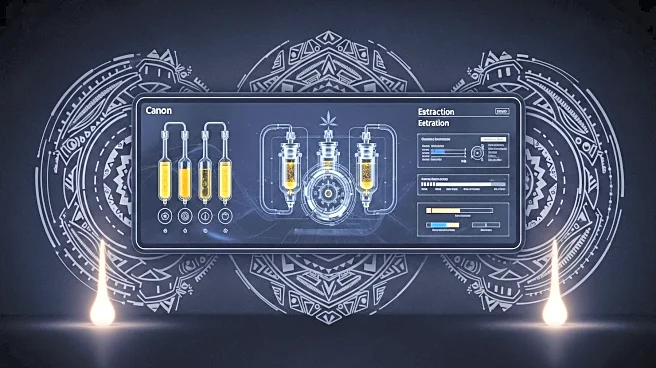What's Happening?
The Nigerian oil and gas industry is undergoing a significant transformation as companies are increasingly adopting digitalization to preserve tribal knowledge and improve operational efficiency. Tribal knowledge, which refers to the unique ways tasks are executed within organizations, is traditionally stored in paper-based Standard Operating Procedures (SOPs). However, this method poses challenges such as degradation over time and difficulty in updating information. The Nigerian Downstream Petroleum Regulatory Commission (NUPRC) mandates that all oil and gas companies document their SOPs properly. To address these challenges, companies are now digitizing SOPs, creating digital repositories that can be easily updated and accessed by frontline workers through digital wearables like the RealWear Navigator Z1. This shift aims to improve job execution quality, reduce safety risks, and enhance production efficiency.
Why It's Important?
The digitalization of SOPs in the Nigerian oil and gas sector is crucial for several reasons. Firstly, it ensures the preservation of tribal knowledge, which is vital for maintaining safety, quality, and production efficiencies. As the workforce evolves with older employees retiring and younger ones joining, digital repositories help prevent the loss of valuable knowledge. Secondly, digitalization provides frontline workers with immediate access to critical information, enhancing their ability to perform tasks accurately and safely. This can lead to reduced operational downtime and improved Mean Time to Repair (MTTR) for essential equipment. Additionally, the move towards digitalization positions the industry to better withstand disruptions, such as those experienced during the COVID-19 pandemic, by supporting business continuity and resilience.
What's Next?
As the Nigerian oil and gas industry continues to embrace digitalization, companies are likely to further integrate advanced technologies to enhance their operations. This may include expanding the use of augmented reality wearables and remote support capabilities to provide real-time assistance to frontline workers. The industry could also see increased collaboration with technology providers to develop tailored solutions that address specific operational challenges. Furthermore, the successful implementation of digitalization strategies may encourage other sectors to adopt similar approaches, potentially leading to broader technological advancements across Nigeria's economy.
Beyond the Headlines
The shift towards a digitally enabled workforce in the oil and gas sector may have broader implications for Nigeria's economic landscape. By enhancing efficiency and preserving knowledge, the industry could contribute to increased competitiveness and attract more investment. Additionally, the reduction in carbon footprint and CO2 emissions associated with improved operational practices aligns with global sustainability goals, potentially positioning Nigeria as a leader in environmentally responsible energy production. This transformation may also influence cultural attitudes towards technology adoption, encouraging other industries to explore digital solutions for their unique challenges.









